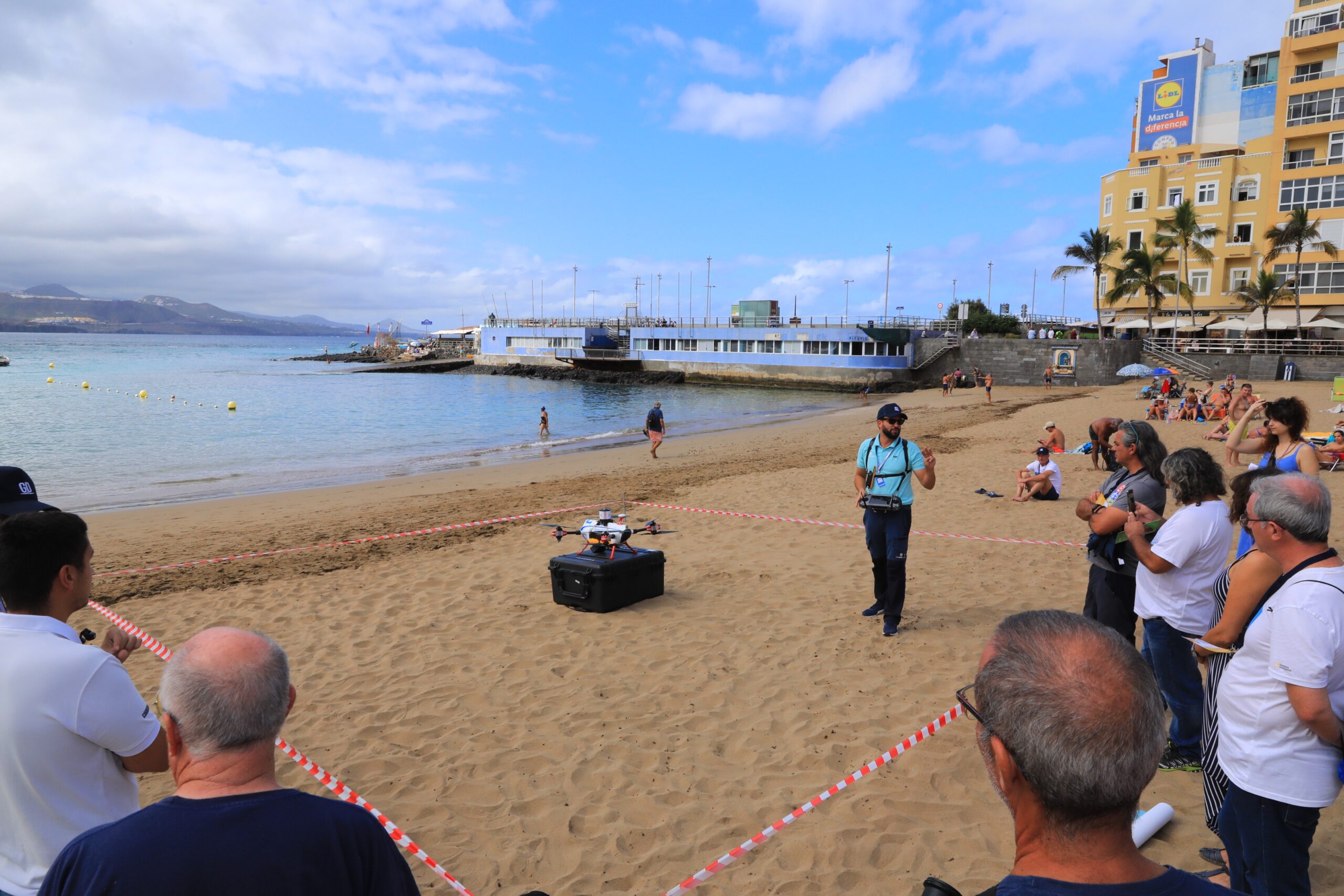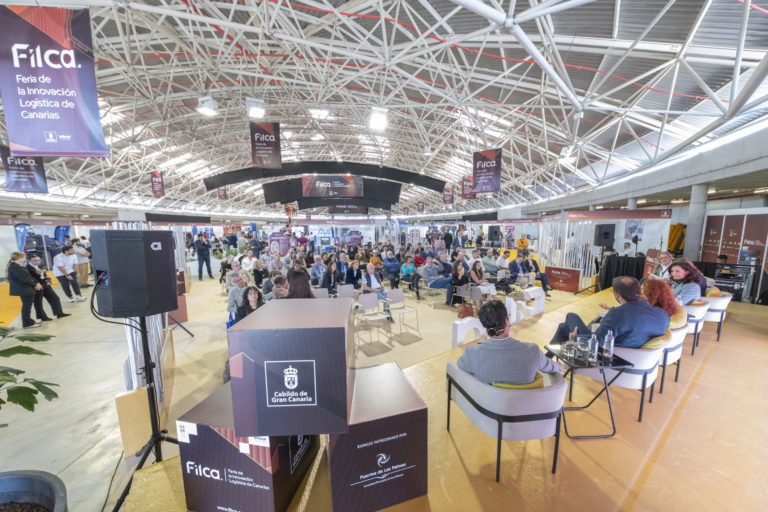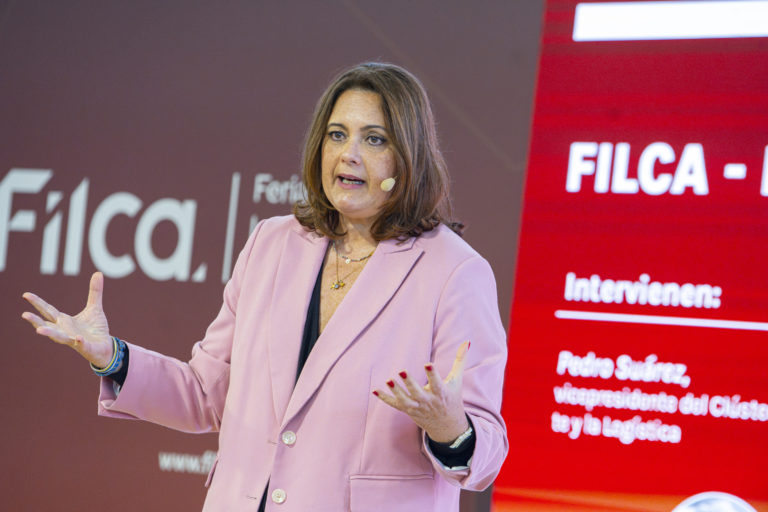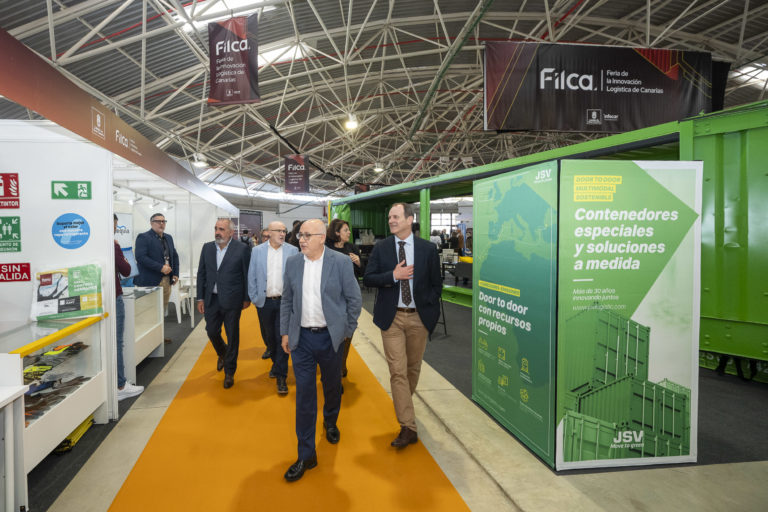The event, with almost 300 registered participants, took place during three days in Infecar and Las Canteras, promoted by the Cabildo de Gran Canaria and co-organized by the Institución Ferial de Canarias and the entity responsible in Spain for the Blue Flag program, with the collaboration of Tourism and Ciudad de Mar of the City Council of Las Palmas de Gran Canaria.
Experts, public managers and private entities conclude the conference, with the endorsement of a large scientific committee, with the aim of reinforcing the sustainability of the coasts as an imperative also demanded by the tourism sector.
Safety, drowning prevention and the use of technology in the management of the coastline have focused on contents that have also focused on the environment.
Las Canteras Beach has been the setting for the conclusion today of three intense days in the framework of the International Blue Flag Congress. Sustainability, Health and Safety, which have been held at the Gran Canaria Conference Center of the Canary Islands Trade Fair Institution (Infecar), during the 2nd and 3rd of November. A typical autumn day at the beach, with good weather and full traffic of users, walkers, bathers and tourists, has turned out to be the best possible culmination of an agenda full of exchange of ideas and knowledge about the environmental care of a safe coastline.
Up to four different workshops on first aid, care for people with disabilities, environmental education and the use of technology in the service of coastal safety have occupied the whole morning in different enclaves of the beach of Las Palmas de Gran Canaria, as a culmination of a program with eight presentations on content related to the criteria required by Blue Flag to award its distinctive, seven presentations of examples of good practice, in the same line, four large round tables and constant debates to promote the quality of the beaches on a global scale.
The Cabildo de Gran Canaria has promoted the celebration of this congress, co-organized by Infecar and the Association of Environmental and Consumer Education (ADEAC), with the support of the City Council of Las Palmas de Gran Canaria, through its areas of Ciudad de Mar and Tourism. Attendees from different autonomous communities and various nationalities have attended these sessions, supported by a scientific committee made up of fifty doctors and experts from different universities, university hospitals and private entities.
Lectures at Infecar
Antonio Morales, president of the Cabildo de Gran Canaria, Pedro Quevedo, councilor of Tourism of Las Palmas de Gran Canaria and José Palacios, president of ADEAC, inaugurated on Wednesday, November 2 in Infecar a program in which from the first moment it was clear the relevance of the Blue Flag seal when it comes to guaranteeing a quality tourist offer. Something that Antonio Morales emphasized in his opening speech, and that Pedro Quevedo connected with the significance of Las Canteras as an example of management in the framework of Blue Flag. José Palacios recalled, for his part, the need for collective involvement in the improvement of the beaches.
Jonay López, councilman of Beaches of Telde, also presented on that inaugural day the work developed in the municipality, which has up to four blue flags. Lourdes Díaz Colón, president of OPAS-Blue Flag Puerto Rico, and Ana Muñoz Llabres, deputy director general of Tourism Development and Sustainability of the Secretary of State for Tourism, expanded the vision of the positive impact of compliance with the criteria required by the Foundation for Environmental Education (FEE, whose Blue Flag program is developed in Spain by ADEAC). Johann Durand, International Blue Flag Coordinator, also spoke in detail about this.
The congress even analyzed the effects of the award of the seal on the economy, with a conference given by Jose Archer, (president of ABAE-Blue Flag in Portugal, and the professor of the University of Murcia Fernando Merino.
Intense debates in two sessions, morning and afternoon, have made up, in essence, these two days (November 2 and 3 in Infecar). Examples of success stories, such as those of Las Canteras or the Valencian municipality Alfaz de Pi, venue of the next edition of the congress) gave way, on Thursday, to the presentation of good practices to be adopted as a reference when complying with the Blue Flag criteria. In various areas, from the observation of national regulations (with a new Coastal regulation in force) or European to sections such as the inclusion of people with disabilities, the management of water quality, the efficiency of lifeguard services or the need to promote campaigns to prevent drowning in the water.
In this line, participated, among others, speakers such as Mercè Luz Arque (head of the Department of Culture and Leisure of the ONCE Foundation), Antonio Carrió Calvo, (coordinator of Beach Safety of the City Council of Muro, in the Balearic Islands), María José Figueras Salvat (Professor of Microbiology at the Faculty of Medicine of Reus and expert in the microbiological control of water) or Sebastián Quintana (promoter of the platform Canarias 1,500 kilometers of coastline). Panels with different speakers and extensive round tables closed these two days at Infecar.
The lectures were complemented by the exhibition of posters, videos and panels of the Canary Islands.
Workshops on the beach
The workshops scheduled in Las Canteras this Friday, November 4, have been developed in rotating sessions of two hours. The one on First Aid: use of material resources was given by Roberto Barcala Furelos (professor at the University of Vigo and coordinator of the Research Group Performance and Motricity in Lifesaving and Lifeguarding), Silvia Aranda García (professor of First Aid at the INEFC-Barcelona and coordinator of the scientific committee of the congress) and Xisco Trobat Ferragut, Stand Up Paddle instructor, yacht skipper and professional lifeguard.
Silvia Aranda, in addition to sharing her knowledge about first aid and out-of-hospital care on the sand of Las Canteras also highlighted how the contents distributed in all the workshops “also have the endorsement of the scientific committee” that supports the presentations and exhibitions of the congress. “It is about”, he pointed out, “imparting contrasted and proven knowledge, in the methods and in the use of the materials”.
In this workshop, different elements have been used within a wide range of updated First Aid equipment: material endorsed by Blue Flag for the provision of an adequate service.
The workshop on Attention to people with disabilities was led by Sergio López García (professor in the area of Physical Activity, Health, Recreation and Management at the Pontifical University of Salamanca), Catalina María Gili Roig (teacher of Physical Education in Secondary Education, doctor and ADEAC inspector in Bandera Azul) and Ismael García Moreno (senior technician specializing in sports coaching). The space used, the point of the assisted bathing service in the quarries, has led to a smooth session very close to the shore of the beach.
This workshop has also highlighted the use of specific equipment to provide this service, such as bathing chairs adapted for people with disabilities, and the provision of crutches on the beach to support users with mobility problems.
The session on Proposals for Environmental Education on beaches was led by Charo Beresaluze Sánchez (environmental educator and occupational risk prevention technician), Juan Párbole Montes (coordinator of Young Reporters for the Environment in ADEAC), Francisco García Quinteiro (ADEAC inspector and expert in dune recovery, education and environmental awareness), Joaquim Garrabou (ICM-CSIC) and María García (CEAB-CSIC. Plataforma de Ciencia Ciudadana Marina: Observadores del Mar) and Inés Gómez Ximénez de Sandoval (environmental educator and ADEAC inspector).
Finally, the workshop on Technology at the service of security was given by Adrián Plazas Agudo (CEO of General Drones S.L.), Ángel García García (director and co-founder of Safebeach) and Pedro Martínez (technology director at Sixsenso Technologies S. L.). Here the public could enjoy the controlled flight of large drones, used in surveillance tasks and assistance to rescue services. The departure of a Red Cross inflatable boat from the shore completed a session held at the end of La Puntilla.
These activities have been carried out in three different points of Las Canteras: Los Charcones, the Red Cross Point located at the height of Tomás Miller street and the strip of beach located in front of the Real Club Victoria.
All the pictures of the International Blue Flag Congress at bit.ly/Fotos_BA



